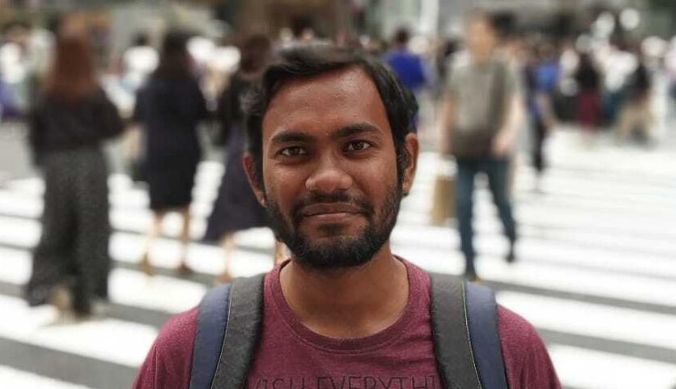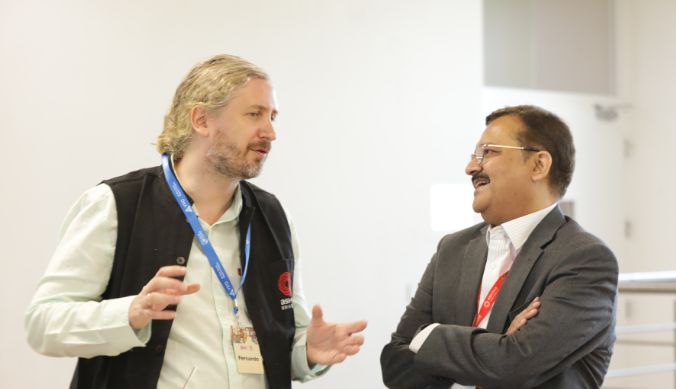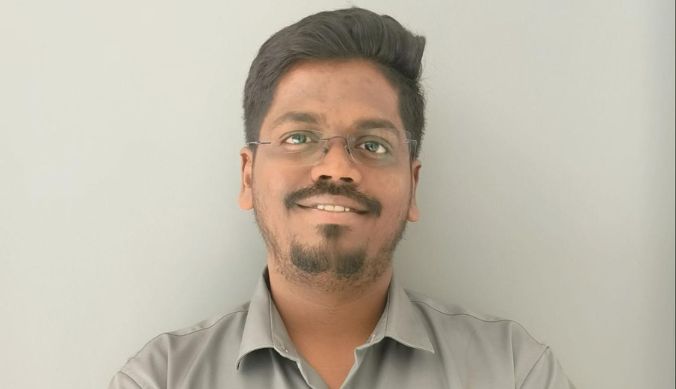Human Capital and its impact on Government welfare programmes
A guest session by the India Program Director, Stanford Center on Global Poverty and Development.

Office of PR & Communications
25 October, 2017 | 13 min readDr. Anjini Kochar, India Program Director and Senior Research Scholar, at the Stanford Center on Global Poverty and Development at Stanford University, a partner of Ashoka University, visited campus on October 24th at the invitation of the Office of Global Education. Prof. Kochar did a presentation and interacted with students where she spoke about human capital restraints like education and health on welfare programmes of the Government of India. She also met with the Economics faculty to discuss research opportunities for further collaboration.
Students who attended the session gave their feedback. Manasi Rao, UG 2018 said, “The session about financial inclusion and rural development in India gave an insightful summary of financial markets and their relationship to poverty reduction. As an economics major, and someone who is interested in a career in developmental economics, I found her talk interesting and also very motivating. Something that made this session more valuable to me was Dr. Kochar sharing her experiences at NABARD and her own field work experiences, since I aspire to do similar work later in life.”
“Dr. Kochar began her talk by introducing us to changing growth models, how there has also been a change in the goal of financial markets from growth to poverty reduction. She then spoke about financial inclusivity, and the high transaction costs people experience for banking in rural India. Her talk covered overarching themes of how financial markets should interact with welfare in the rural setting— is financial inclusion supposed to push people out of poverty, or for them to manage poverty? The talk also asked, and answered important questions such as — why do people save? And should we be pushing more credit in rural India? The answers to these frequently asked questions were unique and very informative for a budding economist such as myself.”
“I particularly enjoyed the focus on the self-help group revolution, and its role in improving savings habits of rural Indian women. This section of the talk covered issues of gender inequality, financial literacy, and micro finance. We delved deeper into the financial literacy aspect, and heard about some experiences Dr. Kochar had while working on a project in Bihar. From here, we moved on to talking about behavioural economics in the context of rural India. A growing field, behavioural economics has many theories, many of which can be tested and could have significant effect on India’s rural poor, such as Thaler’s default theory.”
“And finally, we talked about human capital constraints, institutions, and the Uddepeeka campaign and Dr. Kochar’s experiences in working on that. The conclusion gave a ray of hope for financial markets and financial inclusivity in the future, but also left me with some greater questions about co-ordinated pushes for poverty reduction and welfare, focus on small developmental goals, and the role of political economy in development.”
Dhriti Nadir from the Young India Fellowship (YIF) programme who was at the session said, “As a fresher architect, I decided to join the YIF to get a broader understanding of the world, hoping this knowledge will help me design spaces and cities better. Dr Anjini Kochar’s discussion has been one of the many indispensable lectures at Ashoka University that have helped me gain an insight into current policies and their impact. Her presentation, backed by data and field surveys gave a succinct view of which economic policies have/have not been working in India and why/why not. She was open to questions throughout her presentation which helped people from non-economic backgrounds like me to ask her to explain economic jargon. The discussion was enriched by the various students present whose questions showed diversity in thought and economic beliefs. It was an engaging discussion whose aftermath can be seen in the 3 pages of notes I took and the knowledge in my head.”
While Rakshitha Ram also from the YIF programme, had this to say, “Being a social enterprise enthusiast, it was important for me to learn about a few crucial things mentioned by Anjini Kochar. This included the lack of middle-sized firms in India (which meant the need to encourage entrepreneurship), the need for prioritizing education and health sectors, that is essential to reduce poverty and that people are more important than technology in solving problems. As an engineer, this was an important learning that I took away.”













